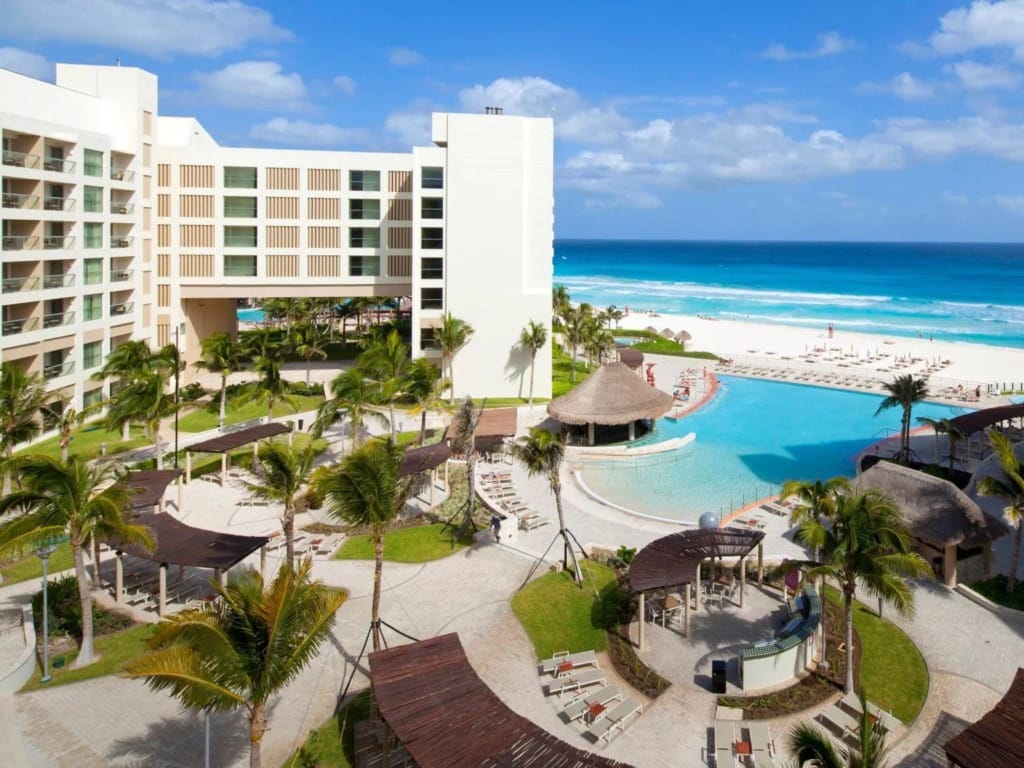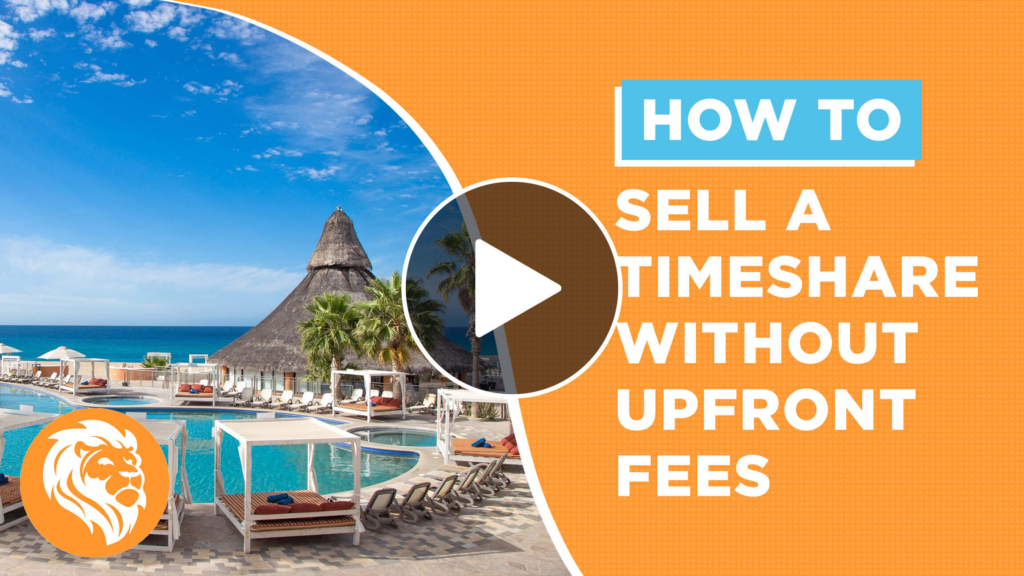In the timeshare industry, maintenance fees are a crucial component of vacation ownership. From landscaping to paying staff, to fixing a leak after a bad storm, these fees go toward the regular upkeep of your favorite timeshare resorts so that you can keep enjoying them year after year. And though the cost of your maintenance fees should be considered when calculating your timeshare budget, you may find that the cost of these annual dues rises each year. Now, you may be rethinking your timeshare ownership and the extra costs. But what happens when you don’t pay timeshare maintenance fees? In this blog, we’ll answer the question, “What happens if I stop paying timeshare maintenance fees?” as well as discuss alternative options to free you from these fees.
What Are Timeshare Maintenance Fees?

Before we explain what happens when you don’t pay timeshare maintenance fees, it’s important to understand what these fees are. Annual timeshare maintenance fees are payments that timeshare owners must make periodically to their timeshare developer. Owners make payments annually, monthly, or quarterly, depending on the developer. Maintenance fees are subject to change, and your timeshare management company should provide a report outlining the costs its owners can expect to pay annually.
Why Do Owners Pay Annual Maintenance Fees?
As the name implies, these fees are very important for maintaining a timeshare. Timeshare maintenance fees cover updates to the amenities and units, and compensation for everyone who keeps your timeshare beautiful. This includes regular property maintenance and employee wages. Property taxes and insurance are also within the umbrella of timeshare fees.
Think of annual maintenance fees the way you would fees to service your car. A car may run well for a while, but after a period of no service, it will quickly deteriorate. Timeshares work the same way; if you want them to keep working right, you’ll have to spend some money. This is precisely why owners pay annual maintenance fees. Maintaining a timeshare resort requires a significant amount of work and expense.
How Much Do Timeshare Maintenance Fees Cost?
The amount that timeshare owners will pay in annual fees depends on a handful of factors. Of course, the timeshare company itself has an impact on pricing. The rate of the fees is also directly influenced by the individual resort within the brand’s portfolio and varies by property. For example, a top-tier resort in Hawaii may have higher fees than a quaint resort in North Carolina. This may be due to one having more amenities, nicer upgrades, a better location, a bigger staff, etc.
Additionally, each unit within a specific timeshare property may have different annual maintenance fees. This depends on the size of the unit and the time of year of your visit. For example, maintenance fees for a three-bedroom ownership may be more expensive than fees for a studio. Those with a points-based system, such as Club Wyndham, calculate the cost of maintenance fees based on the number of points owned. Oftentimes, you can redeem points to pay maintenance fees as well.
According to ARDA‘s State of the Industry Report, the average cost of maintenance fees in 2024 was $1,480. Keep in mind that your maintenance fees will typically increase every year, as seen across the timeshare industry. So, what you pay in fees next year will likely not be the same as what you paid this year.
What’s the Difference Between Timeshare Mortgage Loan Payments and Maintenance Fees?
When it comes to owning a timeshare, two recurring costs often catch owners off guard. These costs are mortgage loan payments and annual maintenance fees. While they might seem similar at first glance, these expenses actually serve very different purposes.
Timeshare Mortgage Loan Payments
If you financed the initial purchase of your timeshare, you may have a mortgage loan—much like you would when buying a house. This loan covers the upfront cost of your timeshare. With added interest, this is usually paid off over a set term. According to the American Resort Development Association (ARDA), the average price to buy a one-week interval in 2024 was $23,160. That’s a substantial investment—especially once interest is factored in.
Annual Maintenance Fees
On the other hand, maintenance fees are ongoing payments required from every timeshare owner. These fees play a crucial role in keeping the resort running smoothly. They cover everything from basic repairs and property upkeep to staff salaries and general improvements. Maintenance fees aren’t tied to your purchase price or loan, and they recur as long as you own your timeshare.
In summary, your mortgage loan payments contribute to the cost of ownership. However, maintenance fees ensure your resort remains enjoyable year after year. Both add up quickly—so it’s essential to budget for each separately.
What Happens When You Don’t Pay Timeshare Maintenance Fees?
So, it should be clear now why paying your maintenance fees is important. However, what happens when you don’t pay timeshare maintenance fees? Hypothetically, if you stopped paying the fees and consistently missed the payment’s due date, you would default on your ownership. Not to mention, missing even a single payment will result in late fees and penalties. This will cost you even more money. You will likely receive numerous phone calls and letters from your timeshare developer. Eventually, you will incur a significant credit impact, as discussed below.
“What Happens if I Stop Paying Timeshare Maintenance Fees? Will It Affect My Credit?”

Good credit can take a while to build and can be ruined in a moment. And having multiple unpaid fees will do just that. These unpaid annual maintenance fees can be sent to collection agencies, which can damage credit reports. It’s essential to note that your credit score will be affected by defaulting on your ownership.
A timeshare foreclosure can have a significant and lasting impact on your credit. Not only will your credit score likely decrease, but foreclosures can stay on your credit report for up to seven years. This negative mark makes it much more challenging to qualify for future credit. Whether that’s a mortgage, a car loan, or even a new credit card, it will often result in higher interest rates or outright denials. Many significant purchases, such as a house or a car, typically require a credit check. Unfortunately, having these issues in your report will make those purchases much more difficult. Although timeshare foreclosure may not remain on credit scores forever, it can certainly have a negative impact on your future.
In addition to damage to your credit, you may also face persistent collection efforts, late fees, and even potential legal action, which can add stress and expenses to an already frustrating experience. The bottom line is that simply stopping payment can lead to significantly more financial distress than most owners anticipate.
Types of Timeshare Foreclosure
Depending on the timeshare company, it may be written in your timeshare contract that the developer has the right to take legal action against owners who don’t pay maintenance fees. If you fall behind on your timeshare loan or maintenance fees, foreclosure becomes a real risk. However, not all foreclosures are handled the same way. There are two primary types you may encounter: judicial and non-judicial foreclosures.
Judicial vs. Non-Judicial
- Judicial Foreclosure: This process involves your timeshare lender taking you to court. A lawsuit is filed, and if the court sides with the lender, the property can be ordered for sale to recover what you owe. Depending on the outcome, you could even be responsible for any remaining balance if the sale doesn’t cover your debt—sometimes referred to as a deficiency judgment.
- Non-Judicial Foreclosure: In some cases, your contract may permit the lender or trustee to initiate foreclosure proceedings without going to court. Here, you’ll receive a Notice of Default (and later, a Notice of Sale) before your timeshare is sold at auction to cover the outstanding loan or fees. This route generally proceeds more quickly than judicial foreclosure, as it bypasses the courtroom proceedings.
Both routes will ultimately result in the loss of your timeshare and can send your account to collections—so it’s always best to address missed payments as early as possible. It’s also possible that you could be sued for unpaid fees in addition to foreclosure. Some developers may pursue legal action to recover what’s owed, potentially resulting in a court judgment against you. Not all timeshare companies take this step, but many will make persistent attempts to collect, ranging from sending your debt to collections to repeated phone calls and letters. Even if the situation doesn’t advance to a lawsuit, the ongoing collection efforts and credit damage can be overwhelming, making it critical to address missed payments promptly.
Be Wary of Timeshare Cancellation Companies & Scams
There are countless resale scams and unreliable companies out there that may make selling your timeshare and effectively getting rid of those pesky maintenance fees difficult. Timeshare exit companies often claim that they can get you out of paying your maintenance fees. However, they’re usually unsuccessful. In many cases, their goal is to have the resort or developer foreclose on the timeshare, which will then negatively impact your credit score.
Proceed with caution when working with companies that tell you to stop paying your annual fees. This is a common timeshare resale scam, and unfortunately, many owners fall for it each year. Not to mention, these companies may require expensive upfront fees, and if you’re not in a position to afford maintenance fees, these extra expenses could lead to disastrous results. Sadly, there are many instances where owners drain their bank account or use up their emergency funds to pay these companies, only to never hear from them again and still be left with fees.
Overall, the best course of action is to continue paying your maintenance fees, contact your timeshare company directly to explore a solution, or consider the resale market.
What to Do When You Don’t Want to Pay Timeshare Maintenance Fees?

It may be tempting to stop paying maintenance fees for various reasons. Maybe you don’t feel like the fees are worth the resorts in your club’s portfolio. If this is you, we would suggest a vacation exchange program like RCI or Interval International (II). This way, you can explore thousands of new resorts all over the world and really feel like you’re getting the most out of your money.
On the other hand, if the cost of your annual due payment increases each year, you might not have initially budgeted for spending as much money. Paying these yearly fees might cause financial strain for some. But unfortunately, you are still legally obligated to pay according to your timeshare agreement. So, what happens when you don’t pay timeshare maintenance fees but want to get rid of them safely without harming your credit report? Fortunately, there are two solutions.
Safe and Practical Ways to Move On From Your Timeshare
If you’re feeling hemmed in by mounting maintenance fees and changing vacation plans, you’re probably wondering—what realistic options do you have for parting ways with your timeshare? The good news is that you’re not stuck. While the process can be tricky, there are several legitimate paths you can explore, each with its pros and cons.
1. Check for a Deed-Back Program
Some timeshare resorts and developers offer deed-back or “take-back” programs. If you’ve paid off your timeshare mortgage and no longer wish to incur the ongoing fees, consider reaching out to the developer to inquire about accepting the timeshare back. Each company has its own process, and there’s no guarantee of approval, but it’s often the most straightforward exit strategy if you qualify.
2. Rent Out Your Timeshare
Not ready to fully let go, or hoping to recoup some costs? Renting out your timeshare week is sometimes possible, depending on the terms of your contract. Exchange networks like RCI and Interval International can increase your unit’s exposure, but be aware that demand fluctuates, and renting may not cover all expenses. Always check with your resort about their policies.
3. List on the Timeshare Resale Market
The resale market is an option for those hoping to sell their timeshare ownership. It’s essential to temper expectations: timeshares typically don’t retain value. However, reselling your timeshare on sites like Fidelity Real Estate can help you ensure that you will not have to pay any maintenance fees in the future.
4. Gift Your Timeshare
Maybe you know a friend or family member who’d love regular trips to your favorite destination. You can sometimes transfer a timeshare as a gift by working directly with the resort or using a trusted closing service. To ensure the recipient enters the agreement fully informed, be sure you are transparent about all costs involved.
Contacting Your Resort Developer
First, you should contact your developer or timeshare company. Many resorts and developers have in-house options to help you get rid of your timeshare if you don’t want it. What’s more, if you find you are still within the rescission period, which is the small window of time after purchase that you can return the timeshare back to your resort developer, then escaping timeshare maintenance fees is simple. However, even if this time period has passed, you still have options. In fact, some timeshare companies will buy the timeshare contract back from you directly! At other times, timeshare owners may want to sell their ownership on the resale marketplace if the timeshare resort developer is unable to repurchase their timeshare. However, there is no need to worry; you can find many buyers on the resale market.
Selling Your Timeshare
If none of the in-house options work for you, you might want to consider the timeshare resale market. The secondary market provides you with considerable control over how to manage your timeshare. You can decide the price to sell your timeshare for, set the terms, and ultimately choose who the timeshare goes to. Instead of paying an exit company to try to get rid of your timeshare maintenance fees, you can sell it to be free from maintenance fees and keep your credit safe. So, stop asking, “What happens if I stop paying timeshare maintenance fees?” and take action with the resale market!
How to Sell a Timeshare on the Resale Market



Reselling your timeshare may seem intimidating at first, but it’s actually pretty simple! Partnering with a credible reseller like Fidelity Real Estate means you’ll be working with a licensed real estate agent with a skill for timeshares. They can help guide you through the process and efficiently navigate the resale marketplace. Whether you have a Hilton, Marriott, Wyndham, Disney, or a timeshare from any other top vacation club brand, we can help you!
To start, all you need to do is create a listing. We can work with you to set the price and make sure you’re happy with the resale process. However, it’s important to keep your expectations in check when it comes to price. Like a car, timeshares aren’t an investment. So, it’s unlikely you’ll get back what you paid for it. Yet, selling your timeshare is the best thing to do if you find yourself wanting to stop paying your annual maintenance fee. Consider researching what timeshares similar to yours are selling for on the secondary market, and start from there. Once your listing is complete, one of our licensed agents will walk you through selling your timeshare.
Once You Get an Offer . . .
When a buyer makes an offer on your timeshare ownership, our agent will handle the behind-the-scenes detail, including drafting up the contracts between the seller and the buyer. Then, once you go through the Right of First Refusal (ROFR) stage, where the developer gets one last chance to accept the timeshare back, you will transfer the title out of your name. The buyer will become the new owner, and you will be free from paying your yearly maintenance fees! Please note: Do not stop paying maintenance fees until you have confirmation that the title is officially out of your name and in the new owner’s name. If you stop payments prematurely, your credit report may still be negatively affected.
Sell Your Timeshare with Fidelity Real Estate

So, what happens when you don’t pay timeshare maintenance fees? With Fidelity Real Estate’s resale market, you’ll never have to worry about the answer to this question! Avoid late fees, penalties, and even foreclosure by trusting in our licensed real estate agents to guide you through the selling process. Fidelity has been in the timeshare resale industry for over 20 years, so we have the experience needed to help you through the whole process.
Fidelity’s licensed agents are experts in all of the major resort developers, so whether you’re selling a Marriott timeshare or Margaritaville Vacation Club, we can help you. Not to mention, we have an A+ rating with the Better Business Bureau, so we’re a trustworthy, credible authority in the secondary market. What’s more, Fidelity charges zero upfront fees! That’s right; we don’t get paid until you do. So, if you’re a timeshare owner and would like a free consultation or have questions about selling your timeshare, feel free to call us at 1-800-410-8326 or email us at [email protected].

Want to Learn More?
Are you seeking more information on how to sell your timeshare without any upfront fees? The video to the left can show you how to do just that! Then, when you’re ready to get started, fill out the form below to get in contact with one of our licensed agents.








